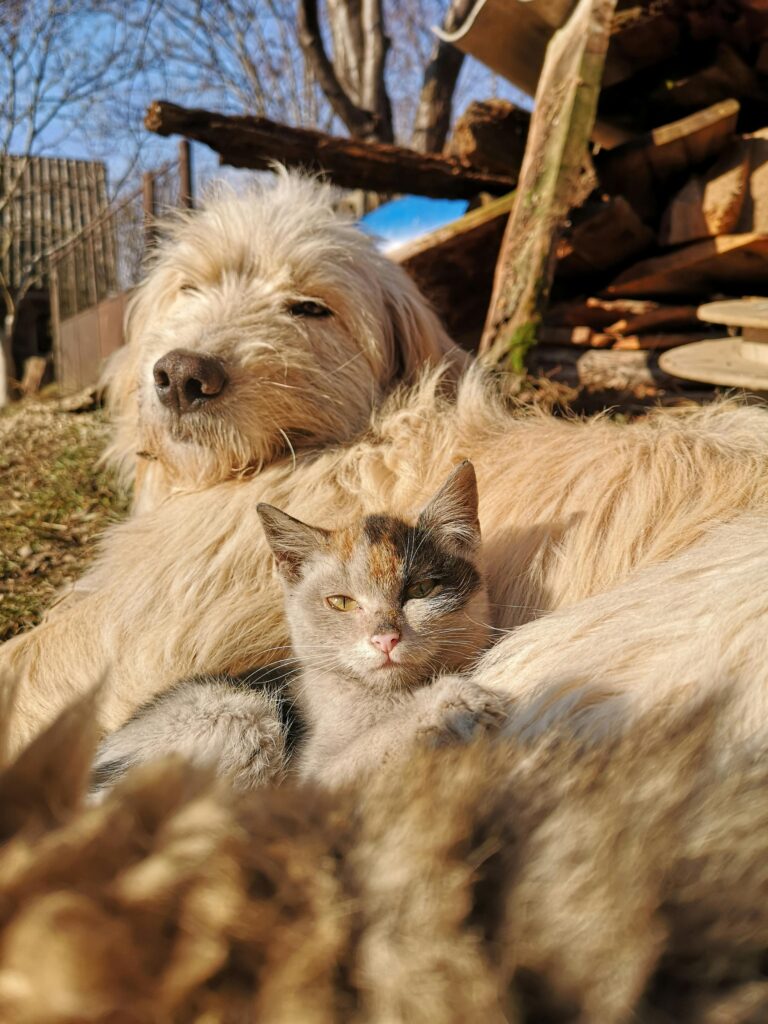Grain-free diets for pets have surged in popularity recently, touted as a healthier, more natural option for our pets. These diets, promoted through persuasive marketing strategies, promise improved digestion, reduced allergies, and superior nutritional quality. But how much of this is fact, and how much is fiction? This blog, supported by scientific evidence, explores the myths and realities surrounding grain-free pet diets.
Understanding Grain-Free Diets
Definition and Common Ingredients
Grain-free diets exclude traditional grains like wheat, corn, and rice, substituting them with alternative carbohydrate sources such as peas, lentils, and potatoes. These diets often include novel protein sources to replace those found in grain-based foods.
Historical Context and Popularity
Grain-free diets entered the pet food market due to growing concerns about pet food allergies and sensitivities. These diets quickly gained traction with a shift towards natural and holistic pet care. However, the rapid rise in popularity has also been fueled by marketing strategies that position grain-free foods as inherently superior despite a lack of supporting scientific evidence.
The Claims: Benefits of Grain-Free Diets
Improved Digestion and Reduced Allergies
One of the primary claims is that grain-free diets improve digestion and reduce pet food allergies. Many pet owners believe that grains are common allergens and that their removal can lead to better health outcomes for their pets. A study by Heinze et al. (2012) noted that pet owners often opt for grain-free diets, believing they are less likely to contribute to allergic reactions.
Enhanced Protein Quality
Another touted benefit is the enhanced protein quality from novel sources like pulses and legumes. Research by de Godoy (2021) found that these ingredients can provide a valuable alternative to traditional protein sources, potentially meeting consumer demand for higher-quality pet foods.
Perception of Higher Nutritional Quality
Grain-free diets are often marketed as having higher nutritional quality with more natural and wholesome ingredients. This perception is a significant factor driving their popularity despite varying levels of scientific backing.
The Reality: Scientific Evidence and Findings
Nutritional Adequacy and Digestibility
Contrary to popular belief, scientific studies have shown that grain-free diets are not necessarily superior in digestibility and nutritional adequacy. Schaumburg et al. (2019) compared macronutrient digestibility between grain-free and grain-inclusive diets, finding that both diets were highly digestible. Further research by Schaumburg et al. (2020) showed no significant differences in fecal metabolites and microbiota, indicating that grain-free diets did not provide unique digestive benefits.
Health Concerns and Risks
Despite the perceived benefits, grain-free diets are linked to severe health concerns, particularly dilated cardiomyopathy (DCM) in dogs. The FDA has investigated potential links between grain-free diets and increased cases of DCM, which affects the heart muscle (Webster, 2020). Studies by Donadelli et al. (2020) revealed that grain-free diets might alter amino acid metabolism and taurine status, potentially leading to cardiac issues. Adin et al. (2022) also identified significant metabolomic differences between dogs on grain-free versus grain-inclusive diets, highlighting the impact of diet on overall health.
Practical Recommendations for Pet Owners
Given the mixed evidence and potential risks associated with grain-free diets, pet owners should cautiously approach these diets. Consulting with pet nutritionists or holistic veterinarians is crucial for making informed dietary choices tailored to pet needs and health conditions. Balanced nutrition should always be the priority, avoiding diet trends that lack robust scientific support.
Final Thoughts
In summary, while grain-free diets have become popular due to perceived health benefits and effective marketing, scientific evidence does not consistently support these claims. Potential risks, such as DCM, highlight the need for careful consideration and consultation with veterinary nutritionists. Pet owners are encouraged to make informed decisions based on evidence rather than marketing hype, ensuring the best possible nutrition for their furry companions.
References
- Heinze, C., Gomez, F. C., & Freeman, L. (2012). Assessment of commercial diets and recipes for home-prepared diets recommended for dogs with cancer. Journal of the American Veterinary Medical Association
- de Godoy, M. D. (2021). A Matter of the Heart: The Use of Pulses in Canine and Feline Nutrition. Journal of Animal Science.
- Schaumburg, P. V., He, F., Mangian, H., Hoke, J., & Godoy, M. R. C. (2019). White and red sorghum as primary carbohydrate sources in extruded diets of felines. Journal of Animal Science
- Schaumburg, P. V., Rodriguez-Zas, S., Southy, B. R., & Godoy, M. R. C. (2020). Evaluation of fecal microbiota of dogs fed extruded diets containing white and red sorghum as primary carbohydrate source. Journal of Animal Science.
- Webster, L. (2020). Reviewing the Potential Link between Grain-free Diets and Dilated Cardiomyopathy in Canines.
- Donadelli, R., Pezzali, J. G., Oba, P. M., Swanson, K., Coon, C., Varney, J., Pendlebury, C., & Shoveller, A. (2020). A commercial grain-free diet does not decrease plasma amino acids and taurine status but increases bile acid excretion when fed to Labrador Retrievers. Translational Animal Science.
- Adin, D., Haimovitz, D., Freeman, L., & Rush, J. (2022). Untargeted global metabolomic profiling of healthy dogs grouped on the basis of grain inclusivity of their diet and of dogs with subclinical cardiac abnormalities that underwent a diet change. American Journal of Veterinary Research.







